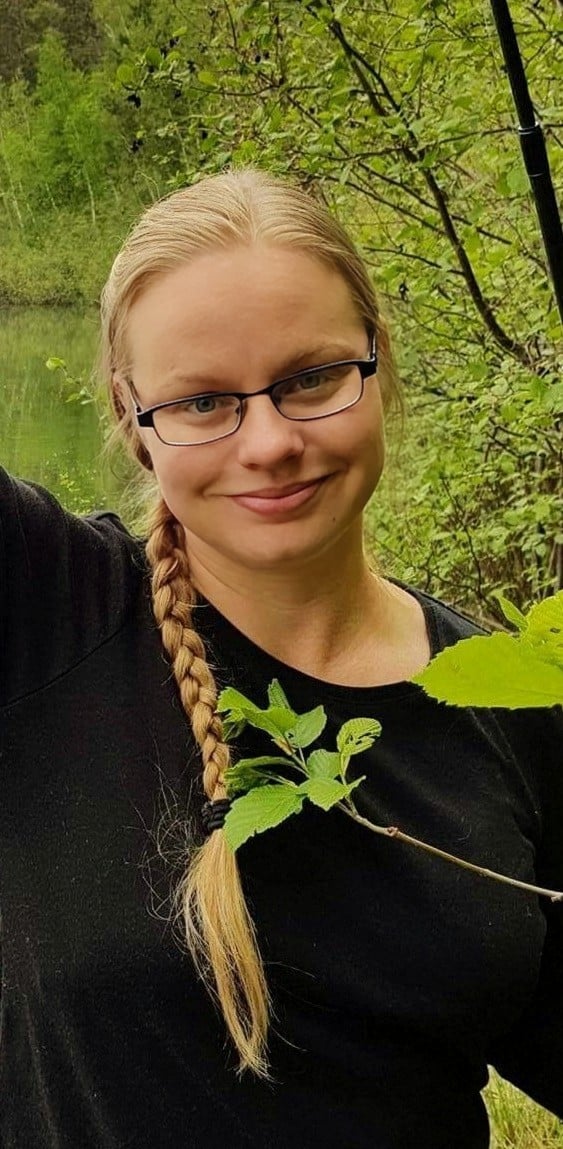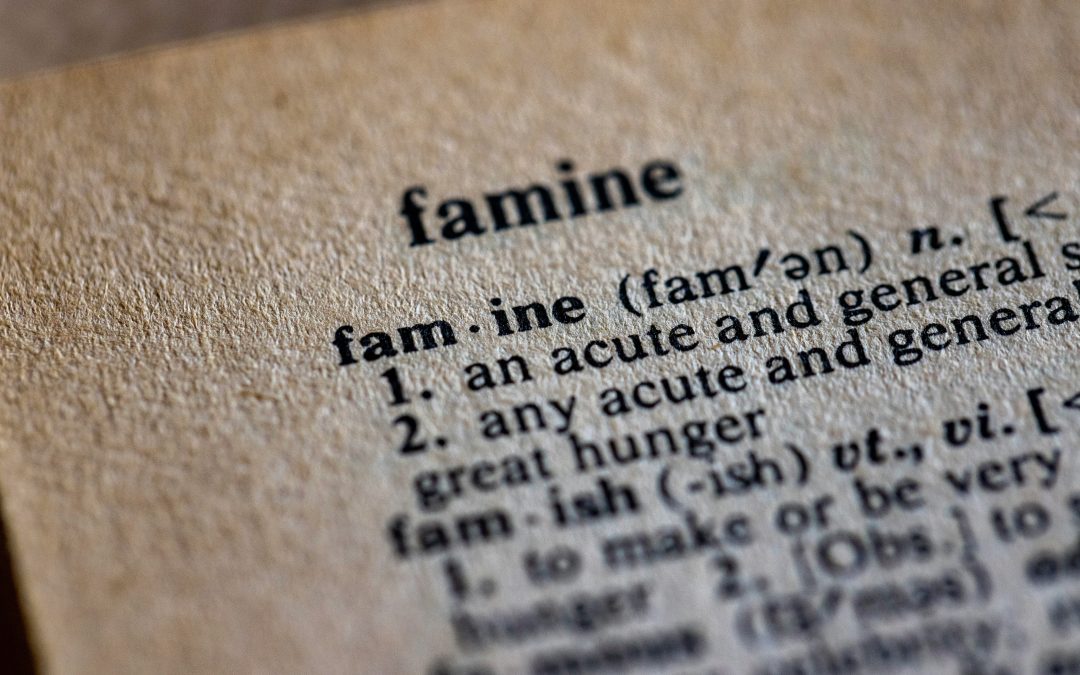Healing is a little like coming off a diet that you didn’t want to be on in the first place. Suddenly, all the things you craved (along with some things you didn’t even know you wanted) lay before you like a feast. You find yourself at life’s table, ravenous and ready to devour it all. In some ways, you approach the table like a starved child…because in many ways, you are just that. Of course, there’s still a part of you that scans the room to make sure no one is watching, and another part of you can’t help but wonder if someone will snatch the decadent sweetness from you. You’re tempted to jam the long-forbidden pleasures into your pockets, hoarding them for later because you’re skeptical of satisfaction that stays too long. How can that be sustainable? At the same time, you can’t wait a second longer, so you greedily satiate yourself with the joys of the present feast, like a coyote devouring its prey.
The awakened possibility of feeding this long-denied hunger is both overwhelming and intensely satisfying.
I am writing this a few weeks after learning I randomly lost ten pounds in a month…without diet, exercise, or effort. I don’t own a scale because I don’t want to be ruled by one. The only time I see a scale is when I visit the doctor, because I don’t care what number it generates. I haven’t always been so cavalier about my weight. Like so many others, I long struggled with insecurities about my body. Ironically, as I’ve aged and my body has taken on a mind of its own, I’ve finally found self-acceptance.
These days, I don’t get worked up about the number on the scale…until recently. Last month, I had two doctor appointments, scheduled just over a month apart, including the typical pre-appointment weigh-in. I was alarmed by a sudden dive in my weight. Although I’m still 20 pounds north of having a body mass index (BMI) that is considered “normal,” I feel healthy, and that’s good enough for me. So what if I’m “overweight.” Not particularly attached to labels or popular culture definitions of beauty at this stage in my life, I had no strong feelings around that transition other than concern. As I’m creeping into the early days of middle age, I am becoming more concerned about my health. I derailed the scheduled appointment to review my health history with my doctor. I wanted to identify the “culprit” behind my random, unplanned weight loss. Six blood tests and a CT scan later, I learned that I was mostly healthy. With a loaded Adverse Childhood Experiences (ACE) score, I’m not particularly surprised that my blood pressure and cholesterol are a bit high in my early 40s. A sudden drop in weight, however, generated genuine surprise. That said, as of right now, there is no medically “provable” explanation for randomly accomplishing what I never could with diets and exercise regimens.
So what else could it be? A few things, I think. For one, I am finally living more fully in the present. I don’t feel locked in a constant state of flight or freeze, which are my go-to fear responses, though I’ve also been known to fight and fawn. Waves of the stress hormone, cortisol, less often flood me. I have long heard that elevated levels of cortisol can contribute to increased abdominal fat and impact the body’s ability to use insulin effectively, but I never really believed it. Not so long ago, I didn’t realize I could turn down the stress valve in my life, so I can understand why I would not have wanted to see the connection between a constant flood of cortisol and retention of fat. I can’t really prove a connection between spending less time locked in fear responses and my weight loss, but I have to imagine that not being inundated with a stress hormone around the clock has to be a good thing, right?
Although I’m not counting calories or hitting the gym, I am taking care of myself in other small ways. I’ve slowed down and I am committed to spending more time engaged in activities that support my mental health. As I examine the traumas I’ve experienced head-on, I am less prone to relying on some of the coping mechanisms I long used to submerge them. Ironically, a year ago, when I was still locked in my longtime favorite defense mechanism (workaholism), it was common to physically exert myself for 12 hours at a time on laborious weekend yard projects. Although considerably more physically active, I was emotionally drained. All. The. Time. I’ve actually cut back on physical exertion while increasing time spent relaxing, and it seems to be paying off.
Additionally, although I didn’t recognize it without the guesswork of my always astute therapist, I may have inadvertently cut back on emotional eating over the last couple of months. I had never really had a conversation about my stress eating with my therapist, but she’s a great listener. She probably recalled the multiple times I talked about the joys of all-you-can-eat sushi; in fairness, I didn’t discover I liked sushi until two years ago, so I’m catching up on lost time. (The only thing that stops me from eating it daily is the price tag.) My therapist probably also mentally noted my casual mention of stocking up on chocolate chips, chocolate syrup, and cocoa powder in fear of increased prices. I never told her about my “stress stash,” but my thinly veiled obsession with food probably gave me away. She was right, though. I have long fluctuated between mindless eating and conscious “stress eating” to try to lift myself out of the fog or pain. If you’ve ever found yourself hiding in the pantry, rabidly devouring a hidden candy bar like a raccoon raiding a dumpster because you’ve “had enough,” you know what I mean. In the past few months, though I continue to be a “foodie” (that’s never changing), I haven’t felt compelled to keep my “stress stash” stocked to the hilt. I call on food less often to “save me” the way I once did…not that long ago. Similar to the way my approach to life in general is changing, I have taken a more “moderate” approach to eating than my previous all-or-nothing ways. I’m finding balance.
The pain doesn’t have to devour us, and it’s OK to sink our teeth into the sweet flesh of life. Healing is the ultimate act of nourishment. Bon appétit!
I suppose that collectively, all of these things add up to weight reduction. These things also all circle back to healing. Healing is hard work, but I’m coming to believe that living in survival mode around the clock is actually much more taxing on our bodies and minds. Because I’m not a natural optimist and because I don’t really care what I weigh as long as I don’t have to buy new clothes, I’ll probably regain the ten pounds I so mindlessly shed. In this experience, however, I think I also gained insight into the things I really need to nourish my soul. I’m not going to lie; sometimes I do need to gorge myself on all-you-can-eat sushi and dip into my chocolate stash. But, I also need rest, self-compassion, and connection. We all do. It’s okay to savor the ordinary and to live in the moment. The pain doesn’t have to devour us, and it’s OK to sink our teeth into the sweet flesh of life. Healing is the ultimate act of nourishment. Bon appétit!
Photo by Mick Haupt on Unsplash
Guest Post Disclaimer: Any and all information shared in this guest blog post is intended for educational and informational purposes only. Nothing in this blog post, nor any content on CPTSDfoundation.org, is a supplement for or supersedes the relationship and direction of your medical or mental health providers. Thoughts, ideas, or opinions expressed by the writer of this guest blog post do not necessarily reflect those of CPTSD Foundation. For more information, see our Privacy Policy and Full Disclaimer.

Finally feeling truly alive for the first time in my life, I am writing from a place of gradual healing with an eye to the future and a hope of connecting with others on similar paths. Forced to withhold a tsunami of emotions deemed irrelevant under the roof of my childhood “home,” the blank white pages of my notebooks invited my raw reflections without judgment. Writing allowed me to free the burdens of my soul, but at some point, I muzzled myself. My pen lay dormant for years until, at 41 years old, I experienced a traumatic flashback during an everyday activity that shook me to the core. Five days later, I started writing about the things I had long withheld. I couldn’t stop. Written words have once again become my refuge. I now recognize that these words, resurrected from the ashes of my pain, may have the power to help others. Above all, I want to magnify and share the messages that I have most treasured on my journey: we are not alone and we don’t ever have to go back. This is where we live now and the future is ours.




